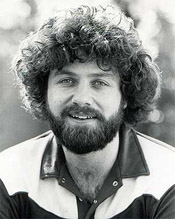This isn’t Peoria-related. It’s just something I found interesting, and felt like sharing.
Did you know there’s been a “war” going on in recorded music ever since jukeboxes came on the scene, and escalating with the advent of compact discs and digital recording technology? It’s called the “loudness war,” and it has to do with the ever-increasing compression of dynamic range in professional recorded music.
Producers noticed when jukeboxes came on the scene that the songs that sounded louder were played more. This preference that humans have for loudness has been scientifically demonstrated by neuroaudiologists. So the race was on to try to make the loudest song in the jukebox. However, analog formats had some limitations. For instance, the louder the music on a vinyl record, the larger the grooves have to be; and the larger the grooves are, the shorter the playing time can be on a standard-size disc. But enter digital production, and the invention of compact discs (CDs), and now you have the ability to really manipulate the sound in order to make it as loud as possible. Here’s a great explanation of how this works:
There are a lot of contributing factors to this push for louder music. One is the fact that people listen to music in noisy places (cars, for instance) where dynamic range cannot be fully appreciated, and thus they want the music to be at a constantly high volume level. Another factor is the fact that radio and TV broadcasters compress their audio before it goes out over the airwaves/cable/satellite, and this heavy compression can cause non-compressed mixes to sound terrible. So many recording engineers believe that the answer is to simply compress the song themselves during mastering to mitigate any additional compression from broadcasters. There’s also a competition among advertisers to have their ads be louder than the rest of the programming on a station in order to stand out and (hopefully) sell more of their wares.
Whatever the reasons are, audiophiles decry the loudness war as ruining the sound quality of recorded music. Not only that, but there’s evidence that sustained listening to such compressed music can lead to ear fatigue, even when listening at lower volumes. As a result, there are recording engineers and musicians who are deliberately recording their music at lower levels with more dynamic range, and trying to educate their fans as to why their music doesn’t sound as loud as other recordings.
There’s even an organization called TurnMeUp.org that’s set up to put explanatory labels on CDs instructing listeners to turn up the volume in order to achieve greater loudness, instead of expecting the CD to be recorded at a solid wall of 0dBFS sound. They explain:
…[M]ost artists feel they have no option other than mastering their records to be as loud as everybody else’s. And when everybody is doing this because everybody else is, who’s actually doing it because they want to?
To address this we’ve created Turn Me Up! Certification, which would allow records meeting our criteria to display the Turn Me Up! Certified label to inform the consumer nothing is wrong, this record is simply more dynamic and all they need to do is Turn Me Up! Our goal is to create an environment where artists will feel comfortable making the creative choice to release a more dynamic record – without the fear of it being misunderstood by the consumer.
They haven’t finalized their certification criteria yet, but they’re working on it.
It’s funny, when audio recording first started, the race was toward greater and greater fidelity — that is, making the recording sound as close to the original sound as possible. Nowadays, fidelity has been abandoned and replaced by pseudo-perfect performance and brutal loudness. There is so much digital processing that goes into modern recording that many recordings bear little or no semblance (i.e., fidelity) to their original live sound.
Perhaps that’s one of the reasons why vinyl records, independent recording artists, and other alternatives to mainstream, major-label recordings are seeing a surge in popularity.


 I’m trying not to get my hopes up, but I’m starting to see more and more positive articles about the return of vinyl records.
I’m trying not to get my hopes up, but I’m starting to see more and more positive articles about the return of vinyl records.  Anyone who knows me well knows that my favorite singer/songwriter is
Anyone who knows me well knows that my favorite singer/songwriter is